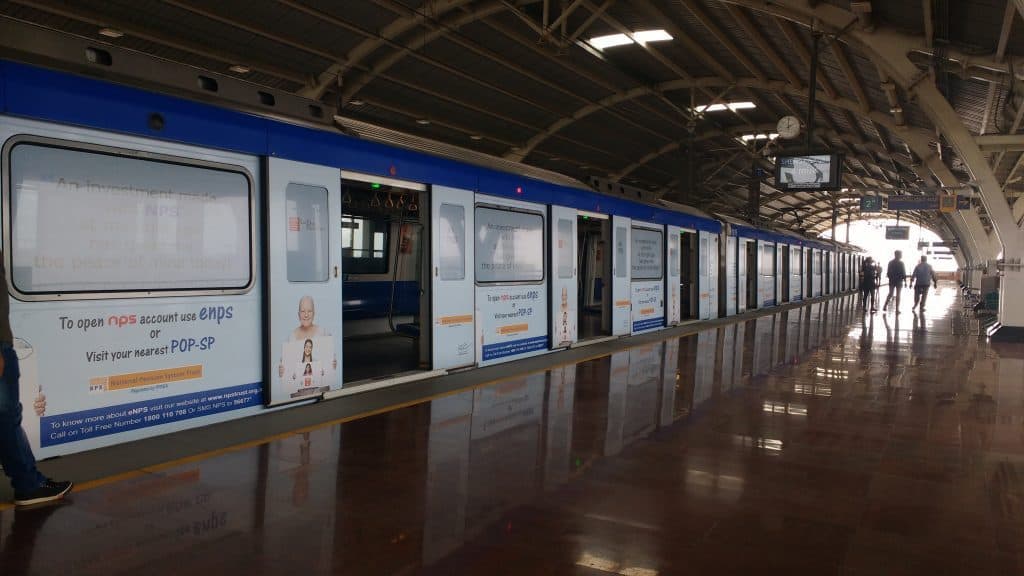First cases of Omicron detected in the city
A traveller from Nigeria who arrived at the Chennai International airport was confirmed to be the first person infected with the Omicron variant of the COVID-19 virus in the city. Subsequently, seven of the individual family members and a fellow passenger who arrived on the same flight also tested positive. Genomic sequencing of their samples is underway.
All the passengers displayed only mild symptoms. The primary contact is also double vaccinated.
The state has amped up screening for the new variant. Passengers from all countries will be subjected to tests at the airport on their arrival. They are also further advised to isolate for seven days and undergo a test on the eighth day. Twelve government labs have also been equipped with the ability to do genomic se to detect the omicron variant of the COVID-19 virus.
Source: The Hindustan Times | The Indian Express
Read more: Current COVID travel protocol to follow if you are visiting Chennai
CM discusses city’s third master plan
Chief Minister MK Stalin spoke of the key elements of the third master plan for Chennai at a conference organised by the Confederation of Real Estate Developers’ Association of India (CREDAI) Tamil Nadu Chapter. The third master plan will cover the time period between 2026 to 2046.
Visions for the plan include improving various infrastructure in the city to global standards such as the Koyambedu market and bus terminus, the Madhavaram bus terminus and creation of a business centre in Pattinapakkam.
The plan also includes creation of affordable housing and making the city ‘slum-free’ by 2031. Over the next decade 9.5 lakh houses will be built for the urban poor. A single window portal will be launched to approve construction work within 60 days.
Source: The Hindu
Metro Phase 2 gathers pace
Construction for the second phase of the Chennai Metro is underway. The Chennai Metro Rail Limited (CMRL) has sped up the process of creating underground diaphragm for Phase 2. This will cover the metro line spanning from Madhavaram to SIPCOT. Tunnelling work will begin after 6-8 months once the diaphragm construction is completed.
The tunneling work is expected to take 2-3 years. CMRL has reiterated its commitment to safety of buildings in the areas near the metro construction site. Learnings from Phase One will be incorporated in the plans for Phase Two to avoid any mishaps.
Source: The Hindu
Chennai Corporation to build three flyovers
The Greater Chennai Corporation is set to construct three flyovers at a total cost of Rs 335 crores. The three locations are South Usman Road – CIT 1st Main Road, junction of Konnur High Road and Strahan’s road, and at Ganesapuram.
One of the flyovers will replace the existing subway at Ganesapuram. It will be a four lane flyover spanning 680 metres. The second flyover will be planned in consultation with Chennai Metro Rail Limited (CMRL). Metro Rail Phase 2 corridor will pass through the junction of Konnur High Road and Strahan’s Road. The third flyover will connect the existing flyover on South Usman Road at the ramp, allowing commuters easy access to Burkit Road junction.
Source: DTNext
Read more: Chennai Metro’s Kathipara urban square project: What citizens can look forward to
Chennai Corporation to sell carbon credits
The Greater Chennai Corporation is all set to become the second only civic body in India, after Indore, to offer carbon credits to companies. Carbon credits can be earned by undertaking projects that reduce the emission of greenhouse gases. The companies can accrue carbon credits for every tonne of greenhouse gases it prevents from entering the atmosphere.
Projects such as afforestation, biomethanisation and the use of other green technologies can be a source of carbon credits. The civic body will not only earn revenue through offering carbon credits but also encourage environmentally friendly initiatives in the city. A request for proposal has been issued to identify consultants who will help the civic body evolve a carbon credit framework.
Source: The New Indian Express
[Compiled by Aruna Natarajan]
